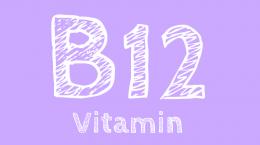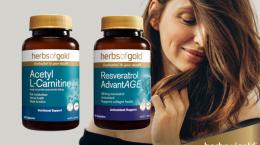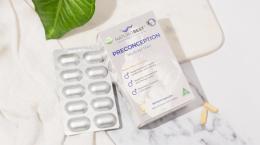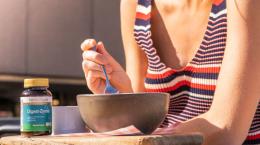Best Zinc Supplements & Zinc-Rich Foods
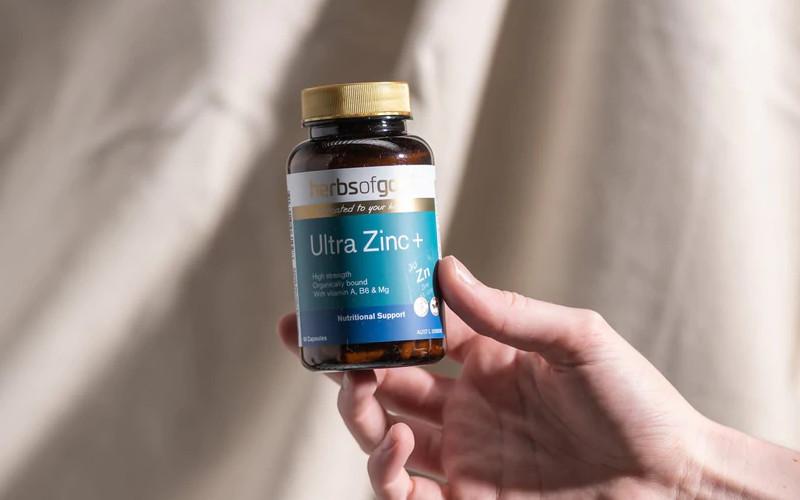
Zinc is one of the body’s most important trace minerals required for healthy functioning. It is responsible for carrying out numerous enzymatic and chemical reactions throughout the body, and plays a major role in immune defence, digestive health and wound healing.
Sources of Zinc
- shellfish, red meat, cheese and eggs
- plant sources such as legumes, seeds and grains
Since the body doesn’t store or produce zinc on its own, it must be acquired via dietary intake. Found abundantly in shellfish, red meat, cheese and eggs, absorption is most bioavailable in the form of animal proteins.
Whilst it can also be obtained from plant sources such as legumes, seeds and grains, these foods also contain phytates, a substance which actually binds to zinc, impairing absorption. Thankfully, for those who abide by specific diets devoid of meat and or dairy, or for those who are zinc deficient, supplemental zinc in the form of liquids, sprays or capsules, are easily accessible.
How does Zinc work in the body?
Zinc is found within most human cells, working hard to perform tasks like DNA synthesis, cell division, replication and growth. Therefore, zinc is important when it comes to a healthy immune system. When you’re even mildly zinc deficient, immunity decelerates. This means that your white blood cells, which actively fight to protect your body against foreign invaders, start to decline.
Fortunately, when you take zinc, it has bonus antiviral properties, making it a great remedy for colds and flus. Zinc works to prevent viruses and shorten symptomatic duration. Furthermore, when looking at gut health, zinc is vital for digestion, strengthening intestinal permeability and integrity [1].
Studies have shown that those with irritable or inflammatory bowel disorders may have increased zinc deficiency, contributing to the miscommunication between the brain and gut—axis and thus zinc would be beneficial. Additionally, zinc also has the ability to reduce and combat wound inflammation, preventing infection [2]. Its role is to repair membrane tissue, blood clotting, and scar formation [3].
How much Zinc do I need?
Severe zinc deficiency is usually rare when zinc is obtained from dietary intake. According to the Australian Nutrient Reference Values, recommendations for zinc intake is as follows [4]:
- 14mg for men 19+
- 8mg for women 19+
- Pregnancy and lactation 11mg/12mg
If you are concerned about zinc deficiency, symptoms may include rashes, dry skin, thinning hair, impaired wound healing and certain bowel conditions. Severe deficiency, however, is quite rare.
Zinc tally tests are also available from your practitioner. They will give you a 10mL dose of zinc which is swished around in the mouth for 5-10 seconds. If there is no metallic taste, a deficiency may be evident. If zinc possesses a strong metallic taste within the first few seconds, deficiency is unlikely.
What is the best form of Zinc to take?
When choosing supplemental zinc, you may be overwhelmed by the countless formulaic terms on the market, including zinc acetate, glycinate, sulphide and oxide. And of course, the difference in compound terminology, also equates to functional diversity. Yet to keep it simple, the most easily absorbable forms on the market include glycinate, picolinate and citrate; they work faster and are less abrasive on the stomach.
You’ll be able to find zinc gluconate and zinc acetate in cold and flu remedies such as nasal sprays and lozenges. On the other hand, zinc oxide will be most commonly found in natural sunscreens, which is particularly beneficial for those with sensitive skin and allergies.
Boost your zinc by combining it with vitamin c for greater immune defence.
CAUTIONS
Toxicity or overdose can result in headaches, diarrhoea and abdominal cramping. Always take with food and hours away from phytate containing foods and other drugs. Make sure to speak to your healthcare professional when choosing to introduce supplemental zinc into your daily regime.
The information presented in this article is intended to be general in nature. Always seek medical advice from your qualified practitioner before using any supplements or following any information presented.
References
[1] Giacomo C. Sturniolo, Vincenza Di Leo, Antonio Ferronato, Anna D’Odorico, Renata D’Incà, Zinc Supplementation Tightens
“Leaky Gut” in Crohn’s Disease, Inflammatory Bowel Diseases, Volume 7, Issue 2, 1 May 2001, Pages 94–98, https://doi.org/10.1097/00054725-200105000-00003
[2] Gammoh, N. Z., & Rink, L. (2017). Zinc in Infection and Inflammation. Nutrients, 9(6), 624. https://doi.org/10.3390/nu9060624
[3] Lin, P. H., Sermersheim, M., Li, H., Lee, P., Steinberg, S. M., & Ma, J. (2017). Zinc in Wound Healing Modulation. Nutrients, 10(1), 16. https://doi.org/10.3390/nu10010016
[4] Nutrient Reference Values for Australia and New Zealand. (2014). Zinc. https://www.nrv.gov.au/nutrients/zinc

